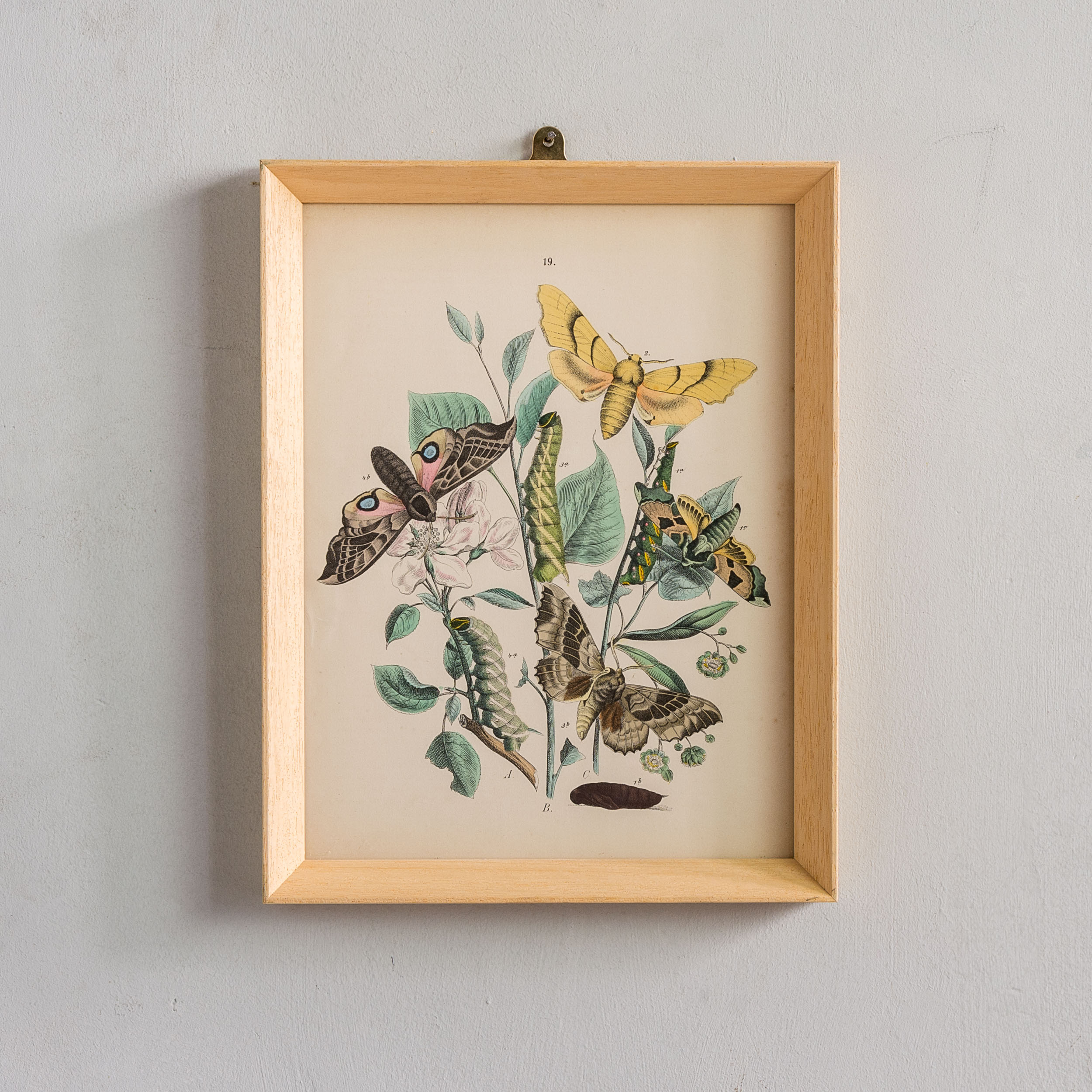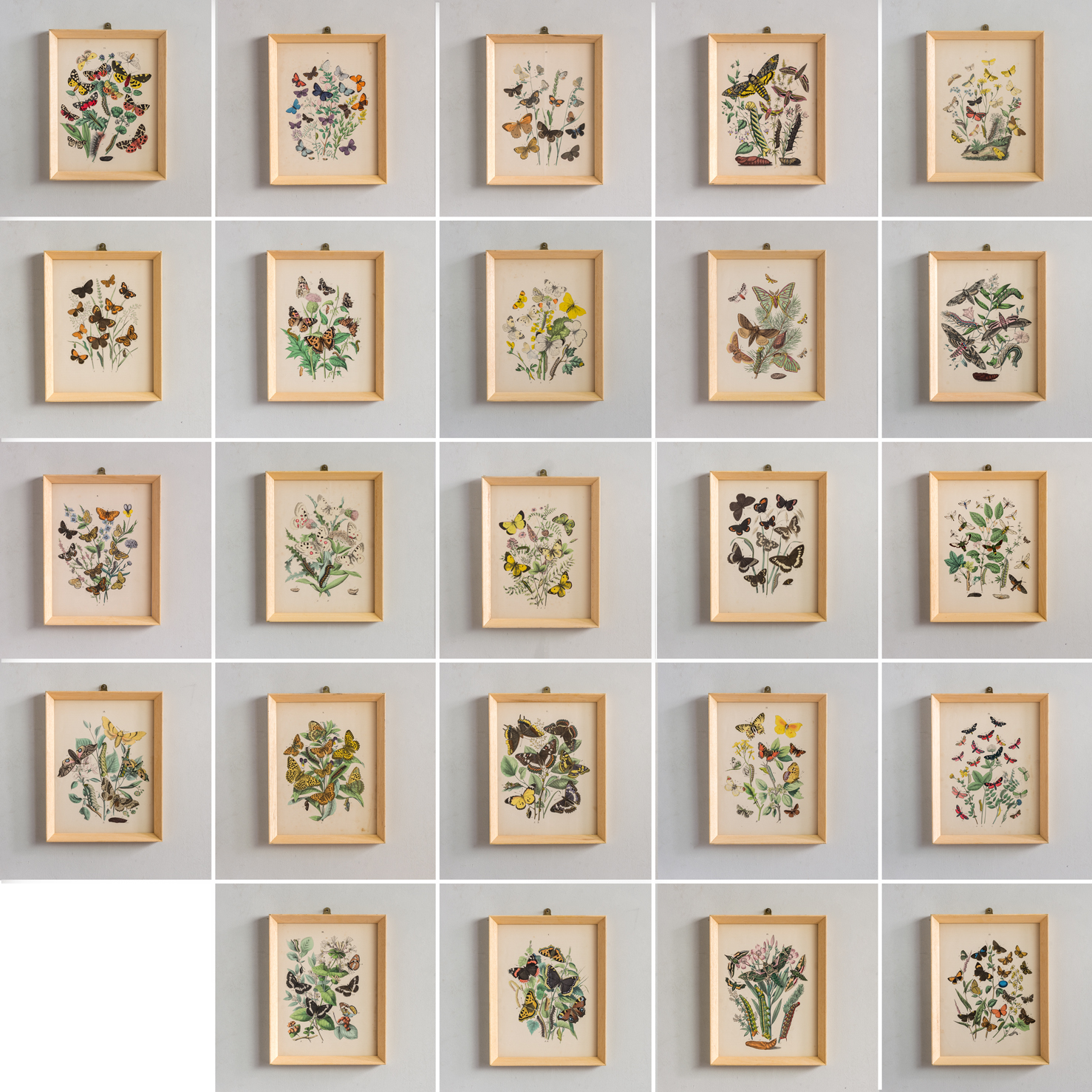19th century Lepidoptera prints,
Based on the work of Arthur Gardiner Butler,
Lithographs published c1875. Framed in natural beech.
£120
In stock
Arthur Gardiner Butler was an English entomologist and ornithologist who worked at the British Museum on the taxonomy of birds, insects and spiders. Butler published a number of works on lepidoptery, including Tropical Butterflies and Moths (1873), Catalogue of the Lepidoptera of New Zealand (1874) and The Butterflies of Malacca (1879), as well as two catalogues of the lepidoptera collections of the British Museum, from which he retired in 1901 due to ill health. Butler was a Fellow of the Royal Entomological Society, the Linnean Society of London and the Zoological Society of London.


